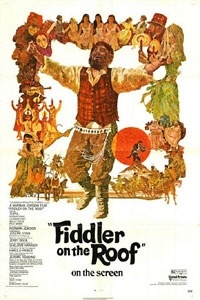 I’m sitting in the living room of my grandparent’s house in Richmond, California. Richmond is north of El Cerrito, which is north of Albany, which is north of Berkeley, which is across the bay from San Francisco.
I’m sitting in the living room of my grandparent’s house in Richmond, California. Richmond is north of El Cerrito, which is north of Albany, which is north of Berkeley, which is across the bay from San Francisco.
My grandparents raised my mom, my uncle and my two aunts in this house. They bought it for a ha’penny and a donkey a hundred years ago. When they bought it, they had across-the-street neighbors. Now they have Highway 880, which stretches down to San Jose and up to the state capital of Sacramento. They’ve been here awhile. I took my first steps here. My cousin Robert helped me catch frogs down the street. Generations of Amsbury family pets are buried in the backyard. My aunt had communist party meetings here, my mom made her firstpancakes here, I spent all of my high school years here. My grandfather died here. Not two feet from where I’m sitting. With his family all around him, feeling perhaps closer than we ever had before or ever will again.
Clifton Amsbury was a physical anthropologist, college professor, political activist, veteran of both the Spanish Civil War and World War II and devoted fan of science fiction. And none of the soft Star Wars stuff. Grampa liked the hard science fiction of Isaac Asimov, Larry Niven, Frederick Pohl and Jerry Pournelle. His library of signed first-editions fills much of the house and he’s long been a member of First Fandom, the collective of people who started science fiction fandom in the United States.
He was so into science fiction, in fact, that any other kind of story never really appealed to him. I remember once in High School I was reading The Sound and the Fury, and Grampa scoffed, telling me he wouldn’t ever read a story about events that could actually happen.
All of that changed after his stroke, when all of a sudden he started to really like classic movie musicals. His favorites were this week’s classic movies:
1952’s Singin’ in the Rain and 1971’s Fiddler on the Roof.
They say that if you live long enough you enter a second childhood and that’s certainly what happened to my grandfather. He always had a playful, childish side to him, but after his stroke – after he couldn’t read very well – that youthful side took over. As sad as his decline felt to all of us, it nevertheless delighted us to see him have moments of such profound joy over such simple things. For most of his life my grandfather fought for the underdog, going so far as to travel all the way to Spain and fight the attempted fascist takeover in the 1930s, a time when the U.S. was still selling oil to Austria. He risked his life for people he didn’t even know and when he got back to the states they called him a communist. As you can imagine, he could be a very serious guy when it came to politics.
But later in life he absolutely loved Singin’ in the Rain. If you’ve seen it, you know why. Lately “entertainment” has come to mean big action or broad verbal comedy or romantic comedies. Singin’ in the Rain is a movie from a period when entertainment involved highly skilled, thoroughly trained stage-worthy performers strutting their stuff with very little story to be found. Nowadays the last vestiges of vaudeville have long been bred away from popular entertainment, but Singin’ in the Rain still has those elements of entertainers plying their trade.
mirrors my grandfather’s own story: trying to hold on to the values he’d fought for in the face of drastic political evolution.
An emotional high point comes during the marriage of Tevye’s daughter, when all is happy until the Russian military presence lowers the boom and the wedding ends with the beginning of a pogrom. My grandfather just crumbled.
In later viewings we just stopped the movie during the wedding. He loves it. And I don’t know, maybe it’s somehow unethical to just erase part of the movie, but my grampa fought enough. He fought by going to war, by participating in political campaigns and by writing more letters to editors than anyone I know. He deserved a happy ending.


